
Royal Grammar School, High Wycombe
The Bacchae by Euripides, 22-23 November 1963

On 22-23 November 1963, the RGS Classical Society put on a production of The Bacchae by Euripides. The first night happened to coincide with one of the momentous events in modern history - the assassination of US President John F Kennedy in Dallas, Texas. The producers of the play became aware of momentous events in the USA as they were making their way to school for the production. The irony of the situation - the real life events across the Atlantic and the storyline of the play, in which a king is murdered by his own mother in a Bacchanal orgy - were not lost on them but the show had to go on... read some background here.
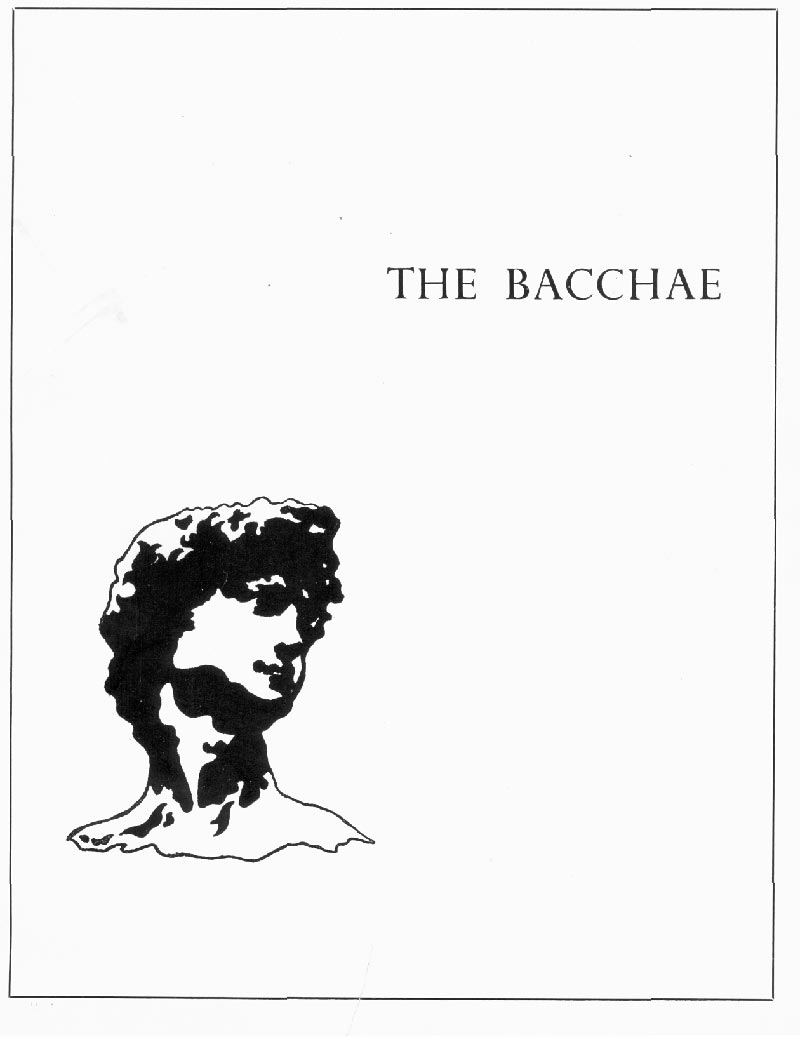
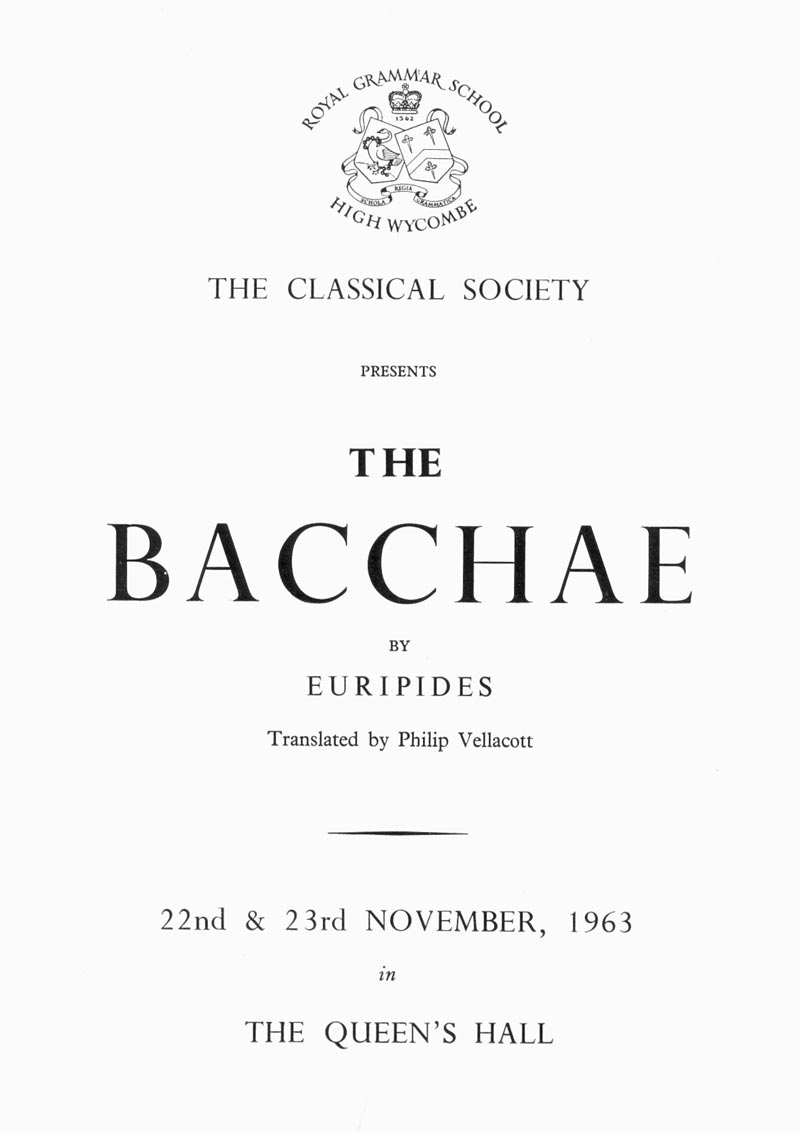
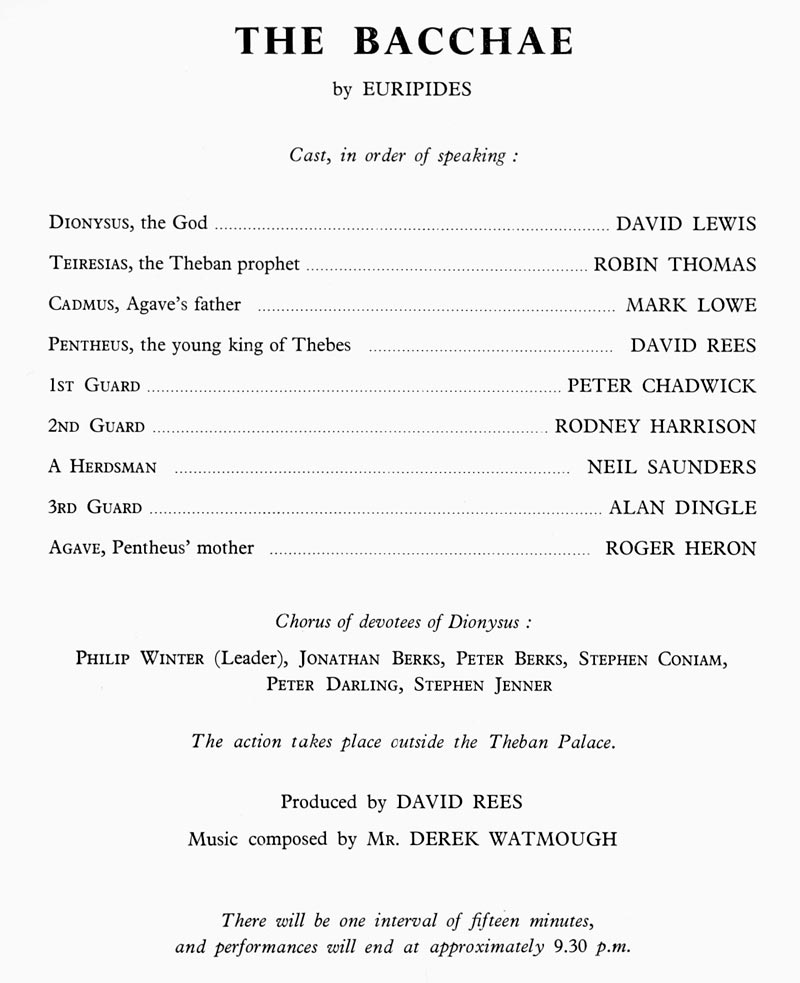
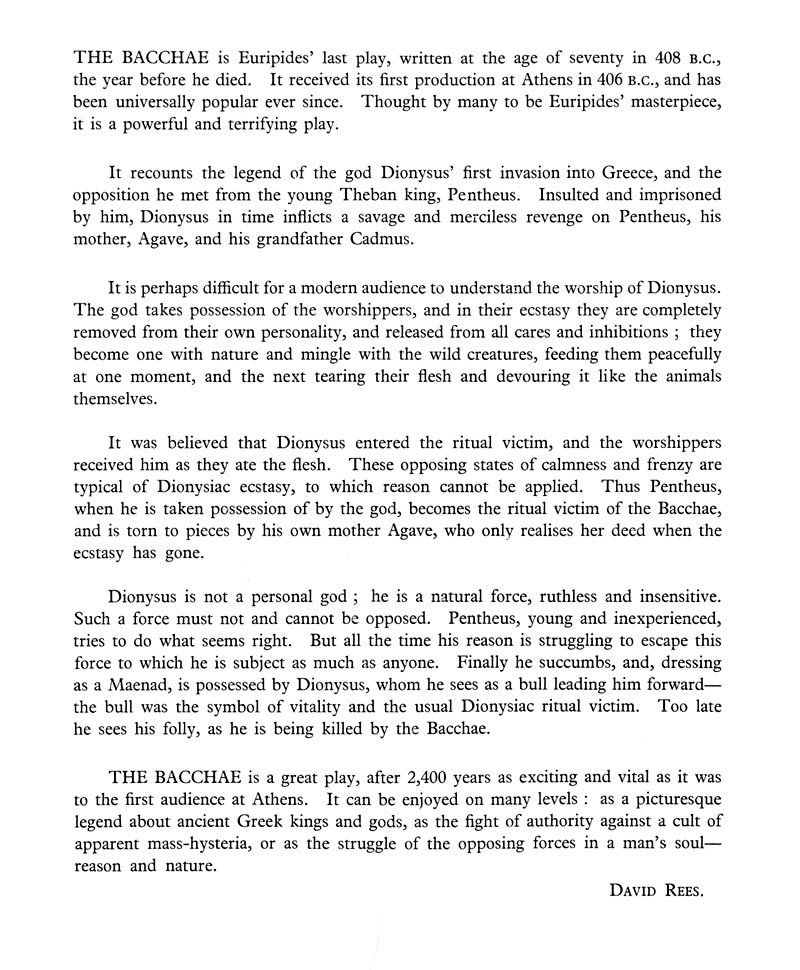
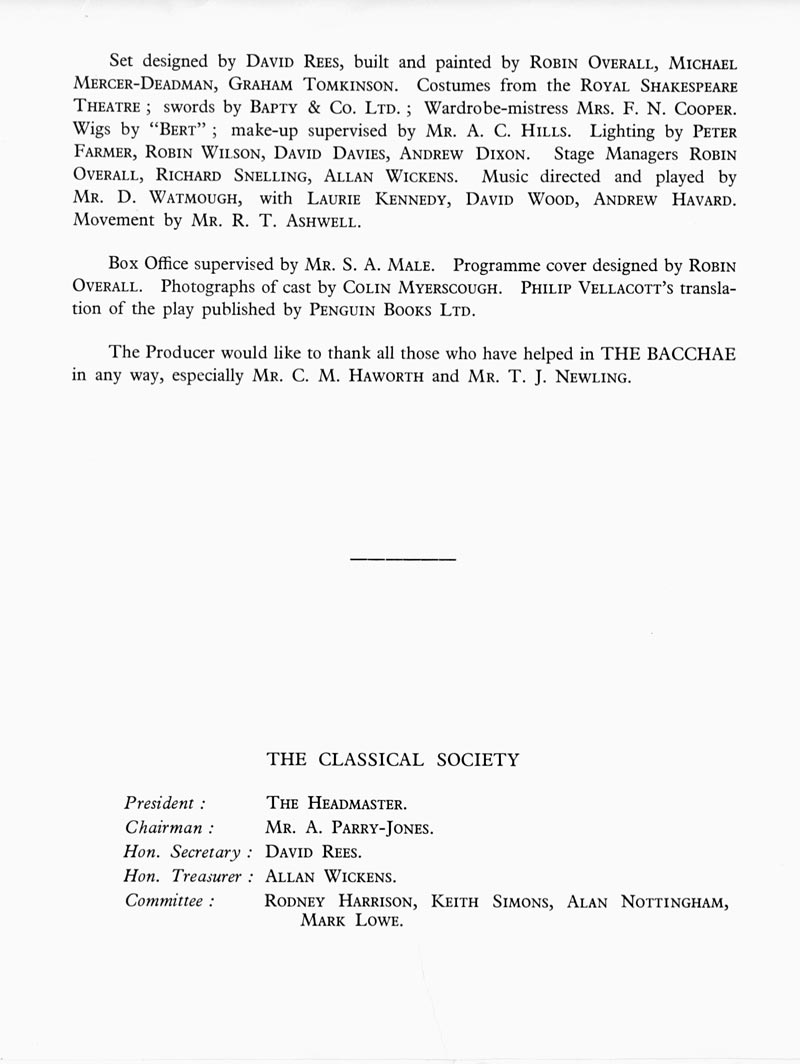
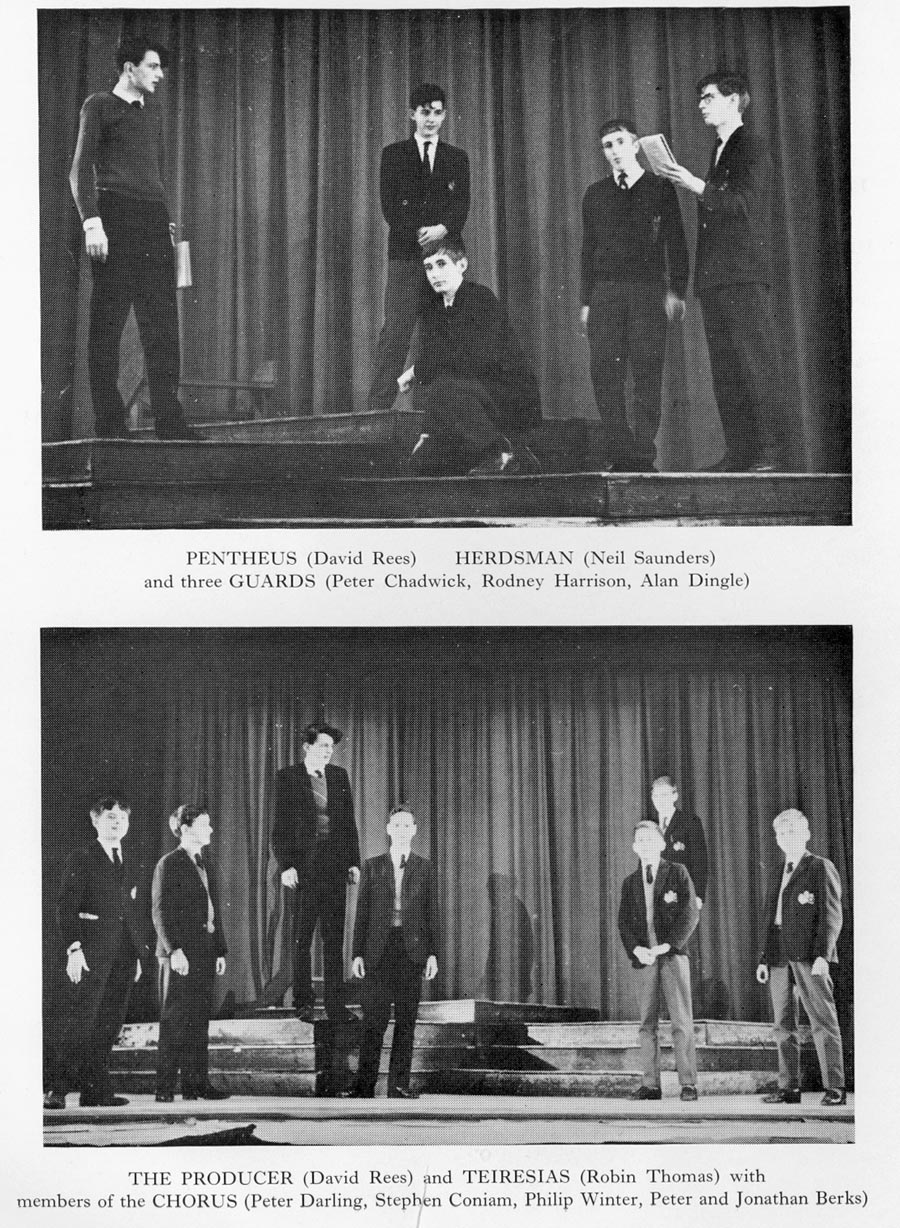
For two nights last November [22-23 November 1963] a verdant oasis of sophistication was spawned amid the cultural desolation which renders South Bucks as about as habitable to the "cognoscenti" as the Gobi Desert to nomadic tribesmen. The occasion was the production by the Classical Society of "The Bacchae", by Euripides, a stark Greek tragedy which is formidable indeed to present. Owing to the intractable nature of the material much depends on the creation of "atmosphere" and the manner in which the statuesque figures of the performers speak their lines. The production satisfied on both counts.
The play deals with the futile attempt by Pentheus, ruler of Thebes, to frustrate the power of a superior being, personified in the god Dionysus. In itself, the situation is artificial, but the tragedy is unfolded when Pentheus is killed by his own mother, Agave, in the midst of a Bacchic frenzy induced by the god. Agave only realises what she has done in a macabre final scene when her father, Cadmus, reveals the mangled corpse of Pentheus. The farcical possibilities of the scene were thankfully avoided; the impact of the situation was not dissipated, as it might have been, by over-acting. Even so, what is one to make of a play which itself has the characteristics of a ritual, yet which works itself up to a taut "denouement"? To the uninitiated, the action must have seemed disjointed with those frequent "musical interludes". All very distressing.
It seems invidious to single out any individual for special praise-every member of the cast performed competently. D. W. Lewis, as Dionysus, had the advantage of a physique well suited to the character he portrayed; apart from a rather flat delivery, his was a commendable performance. D. J. Rees, who also produced the play and designed the set, displayed good stage bearing as Pentheus; as might have been expected, his technique was more accomplished than that of the younger performers. This was also true regarding N. W. Saunders and A. W. Dingle, who related the long passages of reported action with maturity of phrasing. The two old men in the play, R. G. Thomas and M. Lowe respectively, were well-contrasted; Lowe especially spoke up well in the last act. R. L. Heron, as Agave, was suitably uninhibited in his rendering of a very exacting part, which demanded and received its due measure of pathos. It could so easily have lapsed into bathos.
Mention must also be made of the much-despised Chorus, who were anathema to at least one critic. Credit where credit is due! The members coped manfully, sustained by the guiding hand of Mr. Watmough, who wrote a quite excellent musical score. It was a pity that more opportunity was not available to utilise P. A. Winter's good speaking-voice. Criticisms, of a purely quibbling character, revolve around a regret that the dialogue was not sharply pointed in the first act; also, an objection to the concession to realism: did Agave and the Guard really have to appear daubed in a synthetic concoction which resembled coagulated marrow-bone jelly?
On the production side, Rees, with the valuable help of Mr. Ashwell and Mr. Newling, was able to display his talents. The lighting was restrained. The success of the venture is a tribute to the assiduity of the Classical Society, and the "esprit de corps" which animates it. One hopes further productions will follow.
(reviewer) R.C. (Richard) Snelling